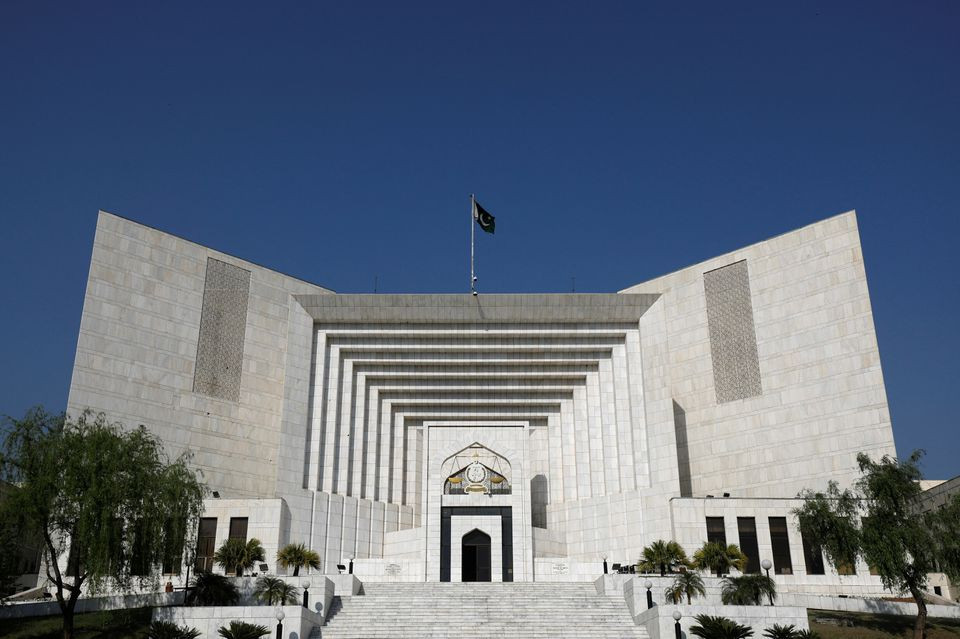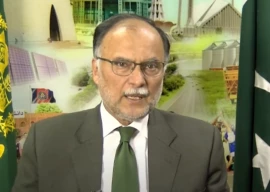
The Supreme Court has regretted that Barrister Umair Khan Niazi, a PTI lawyer, challenged the appointment of poll supervisors despite a clear court order, stating that no one would “be allowed to put forward any pretext to derail democracy”.
A three-member bench of the apex court led by Chief Justice of Pakistan (CJP) Qazi Faez Isa on Friday stayed a Lahore High Court (LHC) order, through which the provincial high court suspended the Election Commission of Pakistan’s (ECP) notifications about appointing district returning officers (DROs), returning officers (ROs), and assistant returning officers (AROs) for the upcoming polls.
In its six-page written order unveiled on Saturday, the court noted that the LHC “with a stroke of pen” stopped a total of 2,753 DROs, ROs, and AROs from performing their duties “thereby derailing the process of elections”.
It said the DROs, ROs, and AROs were appointed pursuant to four notifications while one of these notifications pertained to the officers of the ECP and the remaining three pertained to government officers who have already been holding their respective positions and have not been put in place for the purpose of elections or on any one’s behest.
Read Supreme Court clears path for election
“Initially the ECP had pursuant to sections 50(c) and 51(1) of the (Elections) Act (2017) written to the chief justices of the five high courts and requested them to provide judicial officers for the upcoming elections and not a single one of the chief justices is stated to have agreed to do so. “In reply thereof a letter issued by the Lahore High Court specifically stated that no judicial officer can be spared because about 1.3 million cases require adjudication and provision of such judicial officers would result in the increase of pendency of which the ultimate sufferers would be the litigants.”
The court noted that under such circumstances, insistence by the PTI lawyer upon provision of judicial officers to be appointed as the DROs, ROs, and AROs would effectively mean that a writ has to be issued against high courts “which is not permissible under Article 199(5) of the Constitution”. The SC noted that while hearing a number of petitions, including one filed by the PTI, the SC on Nov 3 instructed the ECP to consult with the president and set a date for the upcoming general elections.
The ECP had later announced that it would hold the general elections on Feb 8. “The Federal Government and the Provincial Governments and the Islamabad Capital Territory all of whom were represented before us concurred and this court held that ‘no one should now put forward any pretext to derail democracy’,” it added.
Read more ECP moves to put in place poll plan
The court observed that later the LHC suspended three of the ECP notifications. Citing the ECP counsel, the court stated that a certain number of days are required to do different acts which the law requires prior to the holding of elections. “[Therefore] the (LHC) order passed at the eleventh hour if allowed to remain in the field would not permit the holding of elections on Feb 8, 2024,” it added.
The court noted that PTI’s Niazi, who is stated to be a barrister, was expected to be well-conversant with the Constitution and to have read the Nov 3 judgment of this court, which had clearly stipulated that, “no one should be allowed to put forward any pretext to derail democracy”.
“However, one individual appears to have just done that and it is indeed a matter of considerable regret that he claims to belong to a political party and we are told that he has served as an additional advocate general, Punjab when the said political party was in government. “In view of the conduct of the respondent No 1, we call upon him to submit an explanation as to why action for contempt of court should not be initiated against him under the Contempt of Court Ordinance, 2003 read with Article 204 of the Constitution,” the order read.


1725443747-0/Untitled-design-(5)1725443747-0-165x106.webp)


















COMMENTS
Comments are moderated and generally will be posted if they are on-topic and not abusive.
For more information, please see our Comments FAQ